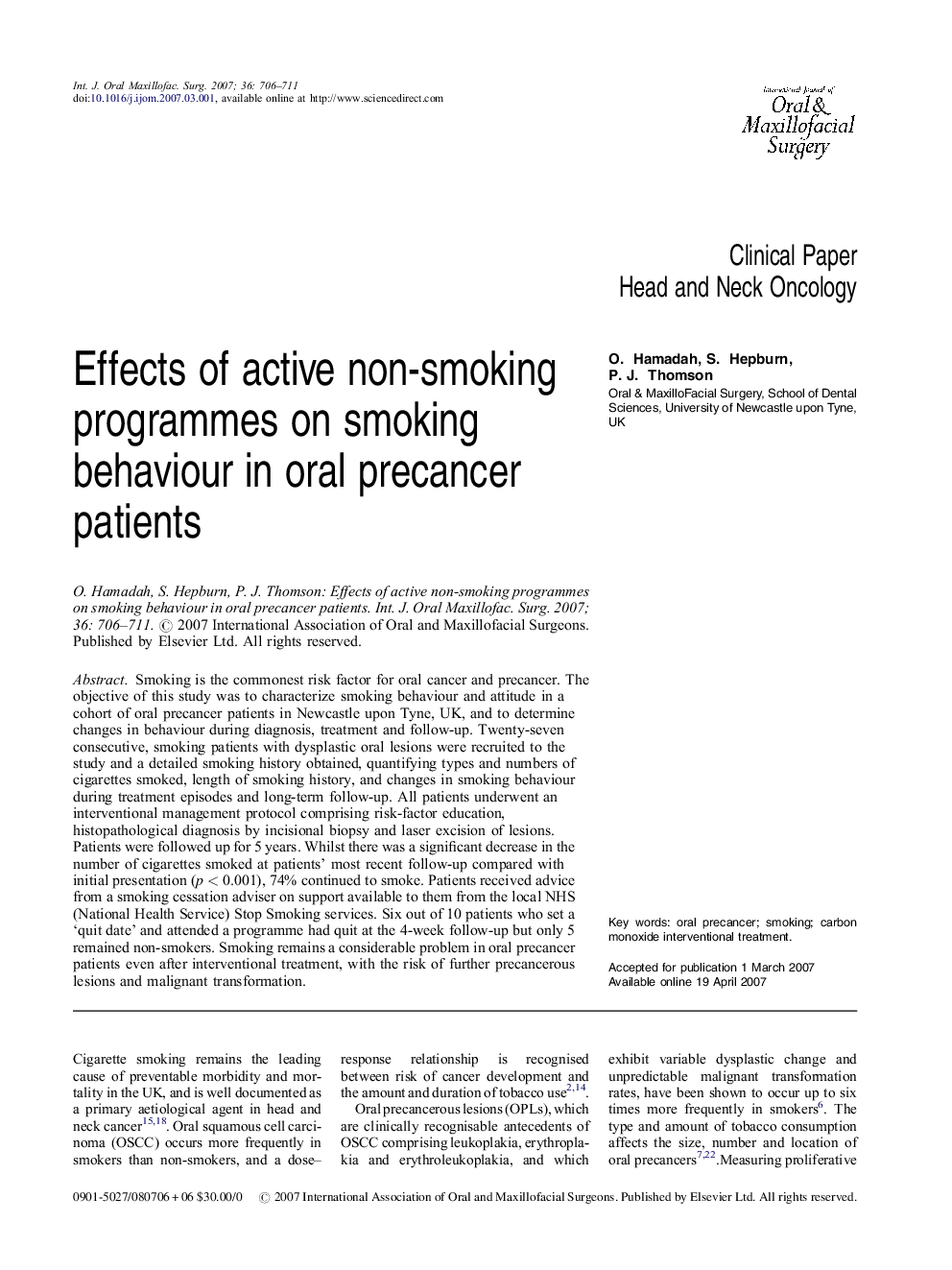| Article ID | Journal | Published Year | Pages | File Type |
|---|---|---|---|---|
| 3134669 | International Journal of Oral and Maxillofacial Surgery | 2007 | 6 Pages |
Smoking is the commonest risk factor for oral cancer and precancer. The objective of this study was to characterize smoking behaviour and attitude in a cohort of oral precancer patients in Newcastle upon Tyne, UK, and to determine changes in behaviour during diagnosis, treatment and follow-up. Twenty-seven consecutive, smoking patients with dysplastic oral lesions were recruited to the study and a detailed smoking history obtained, quantifying types and numbers of cigarettes smoked, length of smoking history, and changes in smoking behaviour during treatment episodes and long-term follow-up. All patients underwent an interventional management protocol comprising risk-factor education, histopathological diagnosis by incisional biopsy and laser excision of lesions. Patients were followed up for 5 years. Whilst there was a significant decrease in the number of cigarettes smoked at patients’ most recent follow-up compared with initial presentation (p < 0.001), 74% continued to smoke. Patients received advice from a smoking cessation adviser on support available to them from the local NHS (National Health Service) Stop Smoking services. Six out of 10 patients who set a ‘quit date’ and attended a programme had quit at the 4-week follow-up but only 5 remained non-smokers. Smoking remains a considerable problem in oral precancer patients even after interventional treatment, with the risk of further precancerous lesions and malignant transformation.
